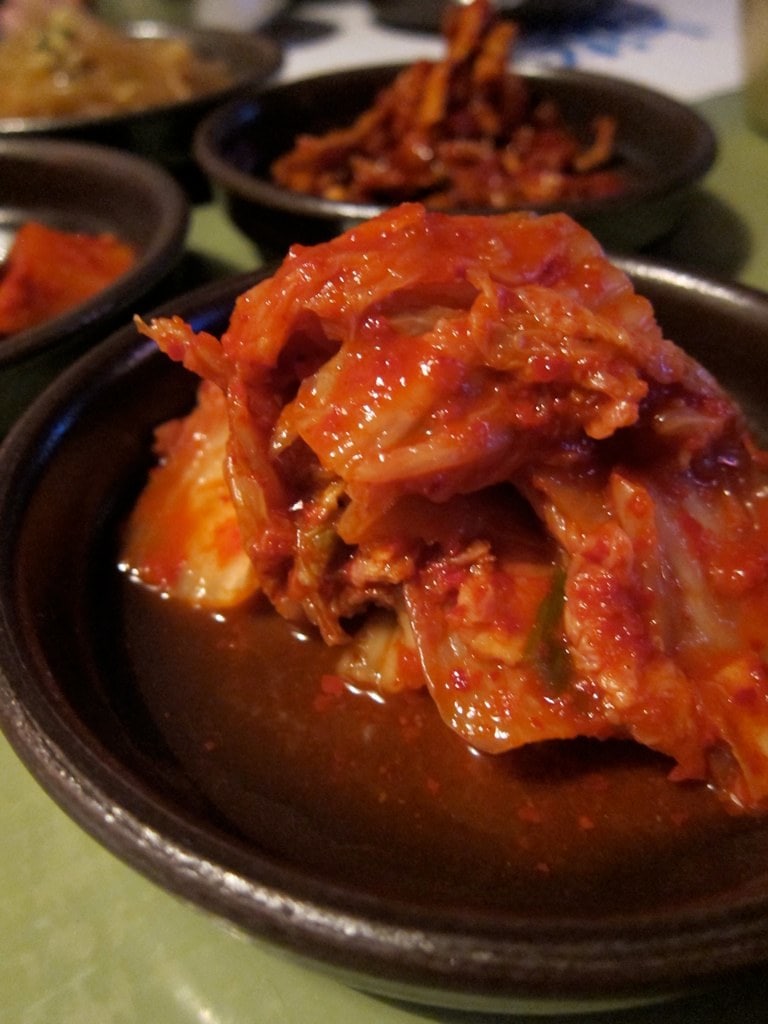
A Brief Guide on the Differences.
For years there has been an ongoing debate about the authenticity of kimchi. At first, it was Korean kimchi versus Japanese kimuchi. Lately, headlines highlight Korean kimchi versus Chinese Pao Cai. Learn about each country’s pickled cabbage and how they are actually quite different from each other. Here is Korean kimchi versus Japanese kimuchi versus Chinese pao cai:
Korean Kimchi versus Japanese Kimuchi versus Chinese Pao Cai
Korean Kimchi
Korean kimchi is the most known around the world. It’s all about that garlicky peppery, pungent, pickled cabbage.
Kimchi is essentially Chinese cabbage that is washed and salted and then seasoned with red pepper, garlic, salted fish, ginger, and fruit like apples or pears. All that is then fermented for at least four weeks in breathable clay jars which are stored underground.
Winter kimchi is spicier than summer kimchi. And there are all regional variations around the country. Kimchi is truly a staple food in Korea as it is standard in all meals from breakfast to lunch to dinner.
In 2001, the United Nations created an international standard for kimchi, and in 2013 UNESCO named Korean kimchi an Intangible Cultural Heritage.
Compared to Japanese kimuchi and Chinese pao cai, Korean kimchi is spicier, saltier, and bolder in taste.
Japanese Kimuchi
Japanese kimuchi also uses Chinese cabbage but skips the fermentation process. The restyle is a lighter, less salty, less sweet, and less pungent spicy pickled vegetable. There’s also white kimchi which Japanese chefs in Korea made in the 1980s purposefully not using chilis.
Chinese Pao Cai
Chinese pao cai is fermented vegetables, namely Chinese cabbage, that’s heavily seasoned with pepper and spices in a saltwater brine. The result is a hot and sour cold pickled vegetable which is more of a variant of Korean kimchi. In the Sichuan province, the recipe has been standardized.
It is interesting to note that because of kimchi’s high demand in South Korea, the country actually imports much of its kimchi from China. Yet China does not import kimchi from Korea because of the country’s strict regulation on pickled goods.
Sign up for my newsletter on the sidebar for blog updates and my travel insider tips! And, check out my vlogs on YouTube!


